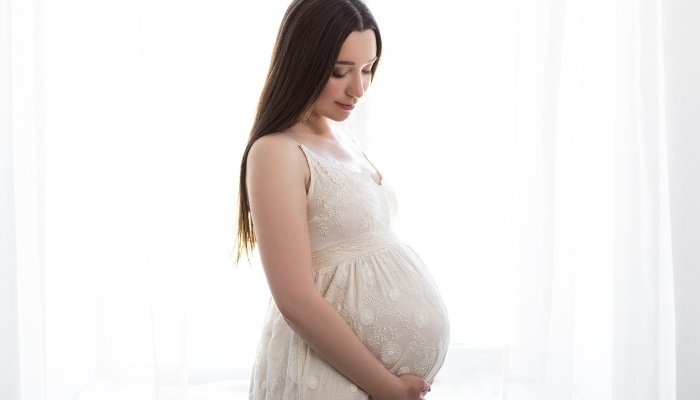Can Identical Twins Have Different Eye Colors? Answered!
Have you ever wondered if it’s possible for identical twins to have different eye colors? It may seem impossible, but there are several examples of this phenomenon. This article will explore the scientific research behind Can Identical Twins Have Different Eye Colors, why this can occur, and provide an in-depth look at the genetics of eye color. We’ll discuss how and why two identical twins can have different eye colors, as well as the implications of this phenomenon and Can Identical Twins Be Boy and Girl?
Eye Color in Identical Twins

Do identical twins always have the same eye color? Do Identical Twins Have The Same Voice? These are common questions that people often wonder about. After all, identical twins are genetically the same and share many physical traits. So can identical twins have different eye colors?
The answer is yes—identical twins can have different eye colors. While identical twins share the same genetic material, there are some small variations in their DNA that can cause differences between them. One of these variations may be enough to affect the color of a person’s eyes. Additionally, environmental factors like nutrition and sun exposure may play a role in how an individual’s eyes appear over time.
Ultimately, every case is unique and there is no one-size-fits-all answer when it comes to eye color in identical twins.
Are Identical Twins Born With Blue Eyes?

As an identical twin, I’ve often wondered if my sister and I were born with the same eye color. After all, we are genetically identical so why wouldn’t our eyes be too? In order to answer this question once-and-for-all, I decided to dive deep into the science of genetics and explore what it can tell us about whether or not identical twins can have different eye colors.
What I discovered is that while it’s highly unlikely for identical twins to have different eye colors at birth, it is not impossible. It turns out that there are many genetic variations that determine which genes get expressed in any given individual and these variations play a role in determining one’s eye color. As a result, it may be possible for two siblings who share 100% of their DNA to end up having different colored eyes!
Baby Eye Color Changes
As a parent or caretaker, you may have noticed that your baby’s eyes seem to change color. It can be startling, even confusing; however, in most cases, this is totally normal. You may also be wondering if identical twins can have different-colored eyes – the answer is yes!
It’s common for babies’ eye colors to appear differently as they grow and develop. This is because the melanin levels in their eyes are still fluctuating during this time. In some cases, eye color can even continue to change until they reach adulthood.
Identical twins often share the same genetic makeup, yet it’s possible for them to have different colored eyes due to fluctuations in melanin levels over time. While it’s not guaranteed that two identical twins will end up with different eye colors, it can occur as they age and their bodies mature at different rates.
Are Identical Twins 100% the Same?

As someone with an identical twin, I’ve often been asked if we are 100% the same. After all, we share the same DNA and look so alike that people can’t tell us apart. But in reality, identical twins are far from carbon copies of each other. But Can Parents Tell Identical Twins Apart? and How To Tell Identical Twins Apart?
For example, take eye color – something that is predetermined by genetics. Even though my twin and I were born with exactly the same DNA, our eyes are two different colors! This phenomenon isn’t rare either; many studies have found that identical twins height and eye colors can be different.
This is because in utero our cells may acquire small changes to their genetic code due to external influences like environmental factors or even random chance. These subtle variations then pass on to future generations of cells throughout development and lead to differences between identical twins despite having the exact same genes at birth!
Is Eye Color Genetic?
As someone who has always been curious about the genetics of eye color, I wanted to find out more. Eye color is an interesting subject as it can vary from person to person, and even within identical twins. But is eye color genetic? And if so, can identical twins have different eye colors? Learn more about eye color in this chart.

To answer these questions, I did some research and found that genetics and inheritance play a big role in determining what color eyes we have. The genes responsible for eye color are determined by our parents and the combinations are unique for each individual. So while siblings may all share the same basic eye color (such as having blue or brown eyes), they can still each have slightly different shades of that color due to the genetic variation in their parents’ genes. Check Understanding Dichorionic Diamniotic Di Di Twins in Simple Terms
What Determines Eye Color?
As an identical twin, I’ve always been curious about how eye color is determined. While we all know that a newborn’s eye color can change over time, many of us don’t realize just how complex the process of determining this physical trait really is. One thing that people often wonder is if identical twins can have different eye colors.
Eye color is determined by a combination of genetics and melanin production in the eyes. Genetically, certain combinations of genes are more likely to produce certain colors. Additionally, other factors such as age and environmental influences can impact the hue and shade of your eyes over time.
So when it comes to identical twins having different eye colors, it could be possible depending on these individual factors for each person. It may also depend on any variations in their genetic makeup or any environmental influences during their development that affected one more than the other.
Can Triplets Have Different Eye Colors?
Yes, it is possible for triplets to have different eye colors. This is due to the genetic variation that exists between siblings, which means that even though they are from the same parents, they can still have differences in their physical characteristics.
Eye color is determined by the amount of melanin in the iris, and this can vary from person to person. It is possible for each triplet to have a different amount of melanin in its eyes, resulting in different eye colors. This type of variation is known as heterochromia, and it can occur within a set of siblings or even within one individual.
In order for triplets to have different eye colors, there must be at least two different versions of the gene responsible for eye color in their parents’ DNA. If both parents carry these genes, then it is likely that the triplets will each inherit one version and display unique eye colors.
Can Fraternal Twins Have Different Eye Colors?
Yes, it is possible for fraternal twins to have different eye colors. This is because fraternal twins develop from two separate eggs that are fertilized by two separate sperm cells. As such, they do not share the same genetic makeup and can differ in physical characteristics, including their eye color.
Eye color is determined by a combination of genetics and environment.
The genes that determine eye color are inherited from both parents, so if the parents have different eye colors then it can be passed down to the twins and result in them having different eye colors. Additionally, environmental factors such as exposure to sunlight can affect the shade of an individual’s eyes over time.
Conclusion
Identical twins can have different eye colors, though the likelihood is low. This phenomenon has been observed in cases of heterochromia, a rare condition that is sometimes linked to albinism. While there are exceptions to the rule, it is generally accepted that identical twins share the same eye color. Although this article provided an overview of Can Identical Twins Have Different Eye Colors and why identical twins may have different eye colors, further research should be conducted in order to provide a more comprehensive understanding of this phenomenon. Check When To Announce Twin Pregnancy: 7 Things To Consider First






